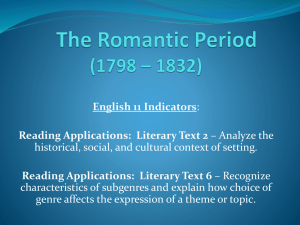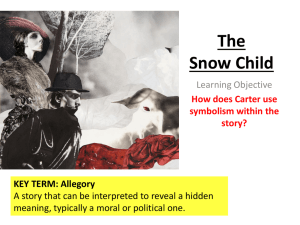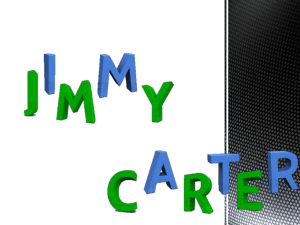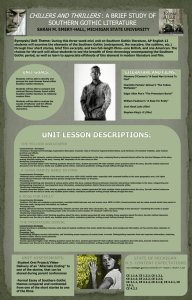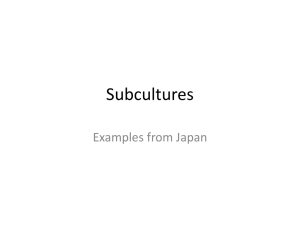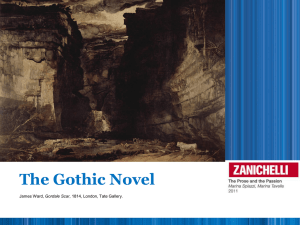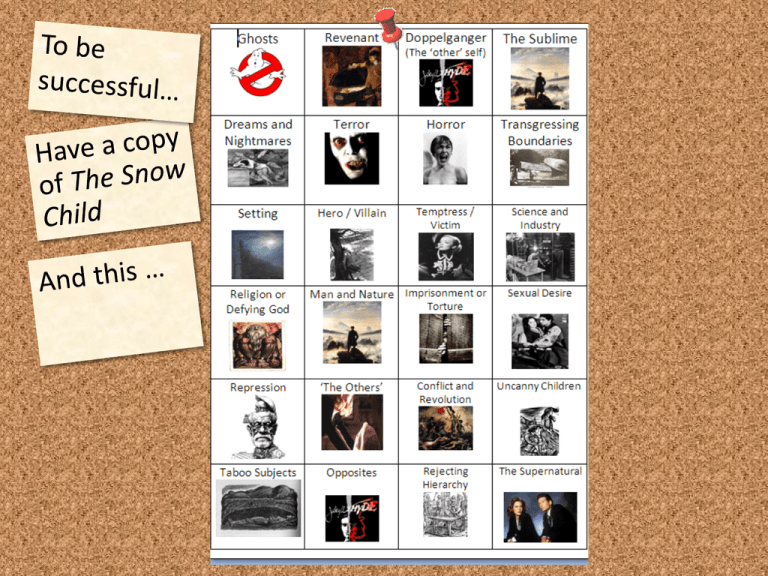
We are learning to:
Explain the significance of Gothic
Motifs in the stories of A Bloody
Chamber.
Discuss the author’s purposes.
Initial Focus: ‘The Snow Child’
Manifestation
of Death
Symbolism
•Snow
•Blood
•Raven
Icon of Gothic Literature
Epitomizsd in Edgar Allen Poe’s
‘The Raven’ (1845).
Intertextuality
Lady Macbeth
‘The raven himself is hoarse
that croaks the fatal entrance of
Duncan under my battlements’
The Countess
•A striking figure
•‘glittering’, ‘shining’
Dressed in:
•‘Black fur with a touch of scarlet’
•‘Pelts of black foxes’
In creating the
character of Asaji
(Lady Macbeth) –
Kurosawa ‘showed her
a mask of the Noh,
named Shakumi. This
was the mask of
beauty no longer
young, and
represented the image
of a woman about to
go mad.
Symbolism
Clothing and Jewellery
Manifest the transference
of affection from older to
younger women.
What is Carter suggesting
about the way that
culture constructs
females?
Genre Convention
Deception – ‘pricking of
thorn’.
Snow White, Sleeping
Beauty
Purity? (‘Snow’)
Sexuality?
Blood?
Objectivity?
Power?
The Count
•Cold-blooded killer
•His desire is ‘as red as blood’
The Real Villain?
•Unpunished and Unscathed
Imagery
Graphic Necrophilia
“Carter seems to suggest
here that men would
rather indulge themselves
with dead fantasies of
sexual control (no matter
how taboo).
"Gothic texts celebrate the victory of emotion over reason". To
what extent do you agree?
‘The Snow Child’
Carter conveys the victory of emotion over reason, as many of her
characters allow their sexual desires to govern their actions. In 'The
Snow Child', the Count's emotions for "the child of his desire"
overpower his reason (or his wife's hatred for the girl. Carter uses
the form of the story to show this. Although 'The Snow Child' is
written with an omniscient narrator, the narrator voice aligns itself
with the character of the Count. Therefore, the disjointed form and
sentence structure, such as the use of semicolons to break up the
flow of the lines - "the girl furred and booted; the Count felt sorry
for his wife" - seem to reflect the Count's almost erratic and
irrational sexual excitement of being able to "thrust his virile
member into the dead girl".
Gothic texts celebrate the victory of emotion over reason’ to what extent
do you agree?
The child’s emotions are sidelined as she is objectified by The Count as his
emotions have taken over reason. Carter uses dark themes that don’t just
celebrate victory of emotion over reason. Instead, the text appears to
condemn the victory of emotions like sexual desire over reason in the
corruption of innocence of children, ‘thrust his extremely virile member
into dead girl’. This startling line appals the reader as it present’s issues of
paedophilia and necrophilia that threaten all reason of society. Carter
further highlights these neglected morals in ‘The Bloody Chamber’, in the
Marquis’ desire of deflowering young virgins ‘the child with her sticklike
limbs, naked’, Cater specifically indicates it is the males emotion that is
prioritised despite the females own emotions of terror ‘I shivered to think
of that’, a contrast that provokes the readers thoughts in reason of this
hierarchy and stimulates debate from a feminists viewpoint. The Gothic
setting around ‘the snow child’ creates a romantic yet haunting landscape
of a cold winter’s day, ‘midwinter- invincible, immaculate’. The opening line
presents the themes of innocence and virginity that are corrupted by the
Count’s power that is inevitable, again presenting a hierarchy of males over
females. This therefore questions the victory of emotion over reason and
society’s debatable morals.
“I’d always been fond of Poe, and
Hoffman – Gothic tales, cruel tales,
tales of wonder, tales of terror,
fabulous narratives that deal
directly with the imagery of the
unconscious
Mirrors;
The externalised self;
Forsaken castles;
Haunted Forests;
Forbidden Sexual Objects”
Angela Carter (1974)
What are Carter’s
purposes in ‘The
Snow Child’?
Gothic texts expose humanity’s
excessive cruelty. To what extent
do you agree?
Gothic imagery is most effective when
it is subtly disturbing. To what extent
do you agree?


